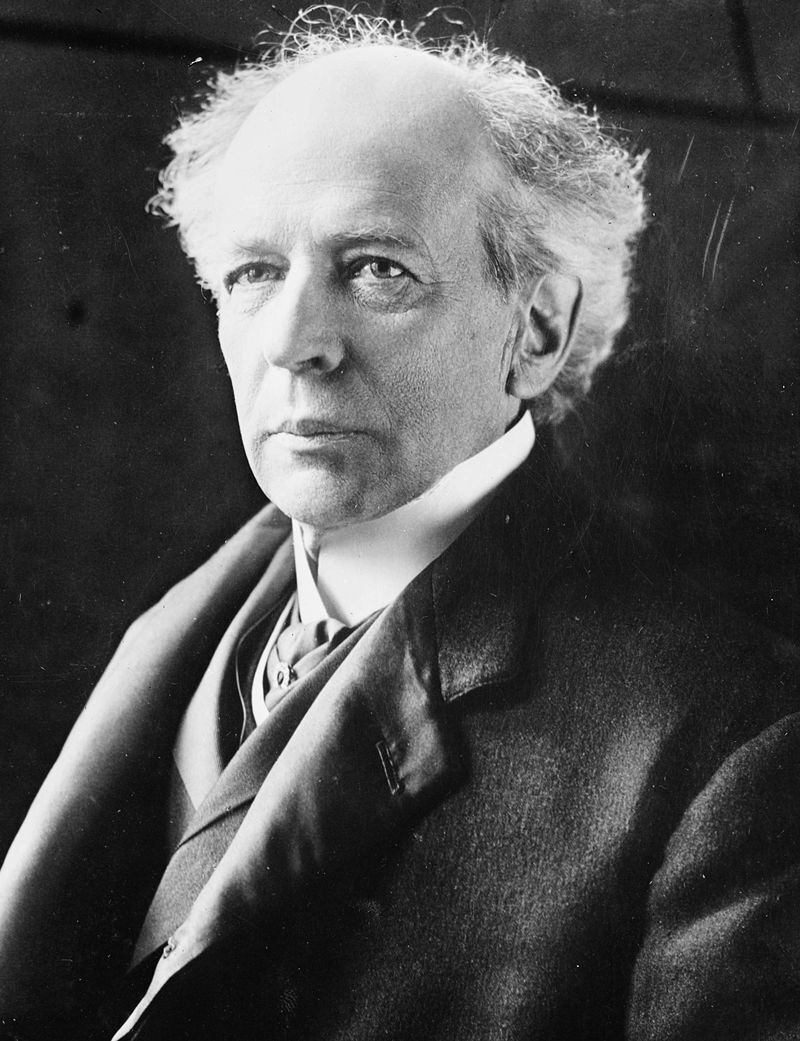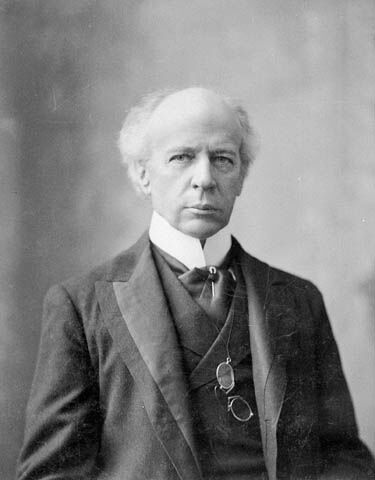Wilfrid Laurier was a Canadian lawyer, journalist and politician. He was Canada's seventh prime minister and the first French-speaking prime minister.
Wilfrid Laurier's actions were ambivalent. Elected with a majority thanks to Quebec, Laurier refused to make the currency and post office bilingual, and to force senior military officers to speak French. He also refused to grant women the right to vote and to create social insurance. In addition, his policy for French Catholic schools in Manitoba deprived Francophones of their separate schools. However, he defended the rights of Franco-Ontarians to bilingual education, encouraged immigration to Western Canada by creating a new transcontinental railroad, and created the provinces of Alberta and Saskatchewan. He also supported the participation of Canadian volunteers in the First World War and campaigned against compulsory conscription.
Wilfrid Laurier's years in office were marked by controversy over official languages. His decisions, often unpopular with both French- and English-speaking citizens, made him a mixed political figure. However, he was recognized for his conciliatory spirit, and for enabling Canada to assert itself internationally, especially towards the United Kingdom.


-
1841: Wilfrid Laurier is born on November 20, in Saint-Lin.
-
1871: He is narrowly elected member of Parliament for Drummond-Arthabaska.
-
1877 : Prime Minister Alexander Mackenzie appoints him Minister of Inland Revenue.
-
1885: Having withdrawn somewhat from political life, since his party had not been in power for seven years, Wilfrid Laurier's interest was revived following the hanging of Louis Riel on November 16, 1885. From then on, the politician advocated the need to unify French and English in Canada.
-
1887: The federal Liberal caucus chooses Wilfrid Laurier as party leader.
-
1896: The Liberal Party of Canada wins the election, making Wilfrid Laurier the country's prime minister.
-
1896: Early in his mandate, he decrees that French-speaking Catholics in Manitoba will have access to French-language education, if numbers warrant.
-
1905: The Prime Minister oversees the creation of two new provinces in the Dominion of Canada: Alberta and Saskatchewan.
-
1909: The town of Rapide-de-l'Orignal is renamed Mont-Laurier in honor of the Prime Minister.
-
1910: Opting for a compromise to satisfy both imperialists and nationalists, Laurier creates the Royal Canadian Navy in support of England. This decision is applauded in London, but disapproved of in Canada.
-
1911: Accused of being disloyal to England and of pushing the country towards political annexation with the United States by renewing the Reciprocity Treaty, Wilfrid Laurier calls an election to settle the issue. He lost the election, and power passed to the Conservatives. Laurier was not re-elected, but became leader of the Official Opposition.
-
1919: He dies on February 17, in Ottawa.